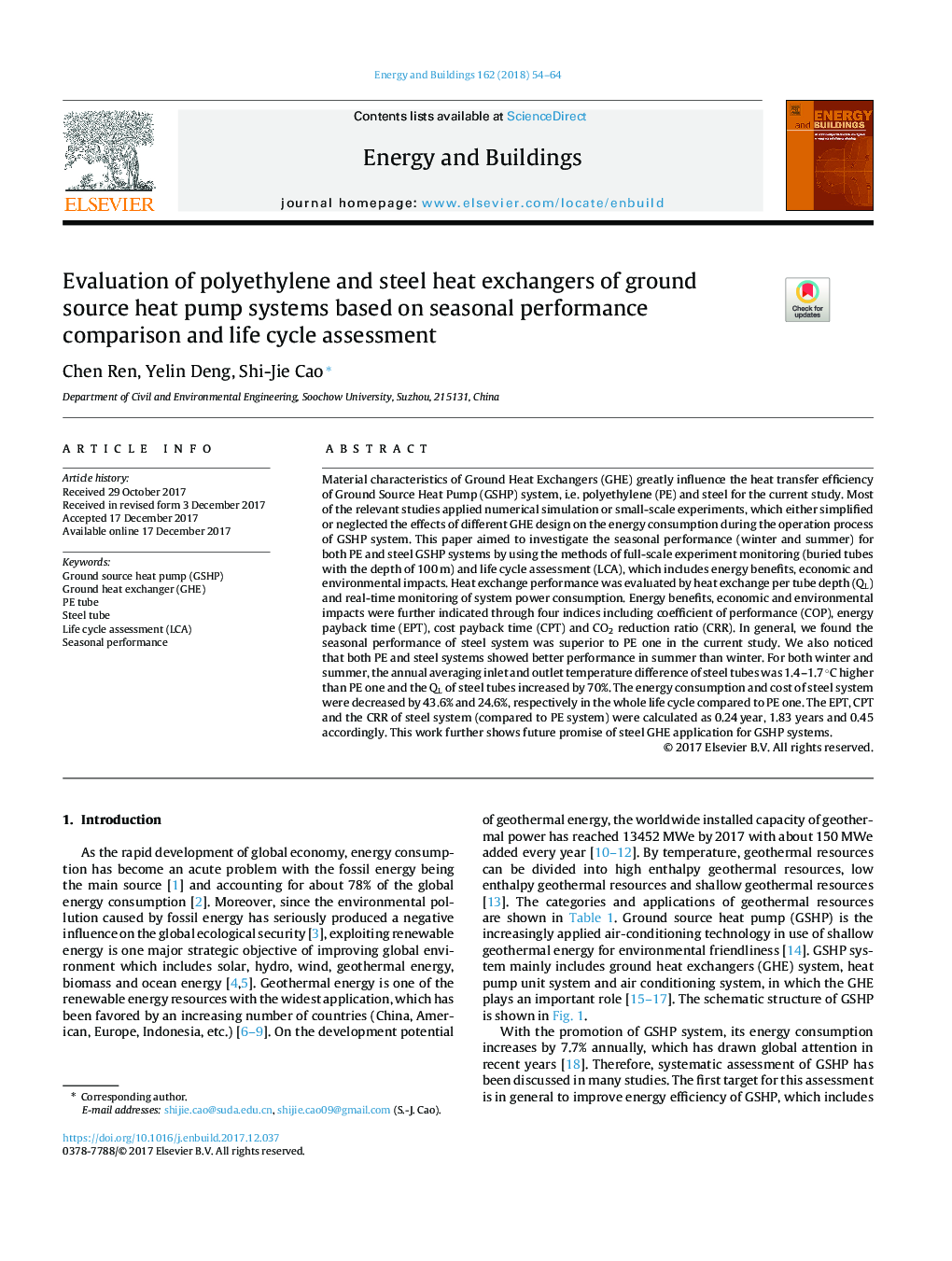| Article ID | Journal | Published Year | Pages | File Type |
|---|---|---|---|---|
| 6728942 | Energy and Buildings | 2018 | 11 Pages |
Abstract
Material characteristics of Ground Heat Exchangers (GHE) greatly influence the heat transfer efficiency of Ground Source Heat Pump (GSHP) system, i.e. polyethylene (PE) and steel for the current study. Most of the relevant studies applied numerical simulation or small-scale experiments, which either simplified or neglected the effects of different GHE design on the energy consumption during the operation process of GSHP system. This paper aimed to investigate the seasonal performance (winter and summer) for both PE and steel GSHP systems by using the methods of full-scale experiment monitoring (buried tubes with the depth of 100â¯m) and life cycle assessment (LCA), which includes energy benefits, economic and environmental impacts. Heat exchange performance was evaluated by heat exchange per tube depth (QL) and real-time monitoring of system power consumption. Energy benefits, economic and environmental impacts were further indicated through four indices including coefficient of performance (COP), energy payback time (EPT), cost payback time (CPT) and CO2 reduction ratio (CRR). In general, we found the seasonal performance of steel system was superior to PE one in the current study. We also noticed that both PE and steel systems showed better performance in summer than winter. For both winter and summer, the annual averaging inlet and outlet temperature difference of steel tubes was 1.4-1.7â¯Â°C higher than PE one and the QL of steel tubes increased by 70%. The energy consumption and cost of steel system were decreased by 43.6% and 24.6%, respectively in the whole life cycle compared to PE one. The EPT, CPT and the CRR of steel system (compared to PE system) were calculated as 0.24â¯year, 1.83 years and 0.45 accordingly. This work further shows future promise of steel GHE application for GSHP systems.
Keywords
Related Topics
Physical Sciences and Engineering
Energy
Renewable Energy, Sustainability and the Environment
Authors
Chen Ren, Yelin Deng, Shi-Jie Cao,
